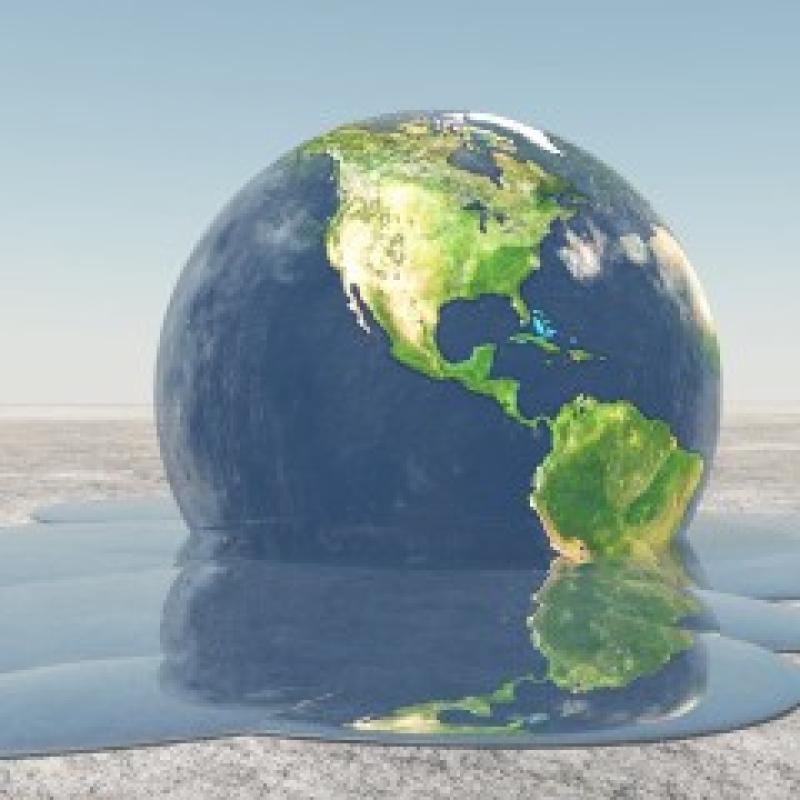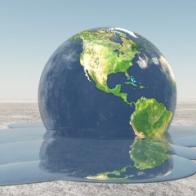Climate Change Is Destroying Our Food
When you think of climate change, you think of the weather. Summers where the sun bakes the parched land with the ferocity of an oven, winters where snow deposits climb higher than your house, extreme weather events like apocalyptic hurricanes and tornadoes that even the most bold storm chasers steer clear of.
But the image that doesn't immediately enter our minds is what climate change is insidiously doing to what we eat ..... it's time to change that.
More frequent extreme weather events caused by climate change are expected to increase food price volatility over the next decade. If we want to feed the world we need to pursue environmental sustainability, and adaptation to and mitigation of climate change impacts.[Photo: www.solarfeeds.com ]
This week, the journal Nature Climate Change published a set of studies that looks at how the continually rising levels of CO2 in our atmosphere are affecting the quality of our food. They did this by looking at wheat samples that had been grown in 1996 using a technique that had boosted the amount of carbon dioxide in the field. They then cut the samples, sealed them up, and compared them to wheat that's been grown in normal levels of carbon dioxide. The findings :
Protein production in the carbon-dioxide-field-grown wheat had been inhibited.
Meaning that while the wheat grown in either environment looks the same, the actual contents of wheat grown with large amounts of CO2 contained a whole lot less protein. (To use a terrifying comparison: It would be like if all of the vats of your favorite IPA were suddenly, horrifically, turned into Bud Light; it's still technically beer, but is it really?)
Predictions as far as how much protein will no longer be in wheat in the future range from about three percent to eight percent, meaning the "protein available for human consumption may drop." While we Americans may not need to buy more protein at the store , our species certainly does need protein in order to survive. Having less around, especially as the planet's population continues to increase, will lead to more people being unable to afford food : Food prices are likely to go up somewhere in a wide range of 3 percent to 84 percent by 2050 just because of climate change, the report said.
That's not some far-away theoretical future. If you're 30 right now, that means food prices are going to skyrocket when you're in your mid-60s. And as Slate points out , less food availability is not a recipe for peace:
"If I were to pick a single indicator--economic, political, social--that I think will tell us more than any other, it would be the price of grain," says Lester Brown, president of the Earth Policy Institute, who has been writing about the politics and economics of food since the 1950s.
So, then. What do we do to avoid this future? While the overall effects of climate change aren't going to be countered with the short-term actions of a single person, there are subtle changes you can make to your eating habits that can ease the strain:
This article is being discussed in the Main Forum. To read the rest of the article and join in the discussion go to THIS LINK .
Who is online
36 visitors



